
Gash-Barka Region: The Untamed Beauty of Eritrea
The Gash-Barka Region, also known as the breadbasket of Eritrea, is a vast and diverse area offering an unforgettable experience for tourists. This region is rich in natural beauty, historical sites, and cultural heritage, making it a must-visit destination for those seeking an authentic Eritrean adventure. The landscape of Gash-Barka is breathtaking, with its rolling hills, expansive savannas, and numerous rivers. The Gash and Barka rivers, from which the region gets its name, are vital lifelines that support the local agriculture and wildlife. Visitors can enjoy picturesque views, serene nature walks, and even spot some of the unique flora and fauna native to the area. History enthusiasts will find much to explore in Gash-Barka. The region is home to ancient archaeological sites, including the pre-Axumite ruins of Qohaito. These remnants offer a glimpse into the rich history and civilizations that once thrived in this part of Africa. Additionally, the region played a significant role during Eritrea's struggle for independence, and visitors can learn about this important period at various local museums and memorials. Cultural experiences abound in Gash-Barka. The region is inhabited by a mix of ethnic groups, each with its own traditions, languages, and festivals. Tourists will have the opportunity to experience local hospitality, taste traditional Eritrean cuisine, and participate in vibrant cultural celebrations. The sense of community and the warmth of the local people are sure to make any visit to Gash-Barka memorable. Whether you are an adventure seeker, a history buff, or a culture enthusiast, the Gash-Barka Region has something to offer. Its untouched landscapes, rich history, and welcoming communities make it a unique and compelling destination in Eritrea.
Local tips in Gash-Barka Region
- Visit during the dry season (October to March) to avoid heavy rains and enjoy more outdoor activities.
- Hire a local guide to explore the archaeological sites and gain deeper insights into the region's history.
- Bring cash as ATMs are scarce in rural areas, and many places do not accept credit cards.
- Learn a few basic phrases in Tigrigna or Arabic to better communicate with locals and show respect for their culture.
- Wear comfortable, light clothing and sturdy shoes for exploring natural sites and rural areas.
Gash-Barka Region: The Untamed Beauty of Eritrea
The Gash-Barka Region, also known as the breadbasket of Eritrea, is a vast and diverse area offering an unforgettable experience for tourists. This region is rich in natural beauty, historical sites, and cultural heritage, making it a must-visit destination for those seeking an authentic Eritrean adventure. The landscape of Gash-Barka is breathtaking, with its rolling hills, expansive savannas, and numerous rivers. The Gash and Barka rivers, from which the region gets its name, are vital lifelines that support the local agriculture and wildlife. Visitors can enjoy picturesque views, serene nature walks, and even spot some of the unique flora and fauna native to the area. History enthusiasts will find much to explore in Gash-Barka. The region is home to ancient archaeological sites, including the pre-Axumite ruins of Qohaito. These remnants offer a glimpse into the rich history and civilizations that once thrived in this part of Africa. Additionally, the region played a significant role during Eritrea's struggle for independence, and visitors can learn about this important period at various local museums and memorials. Cultural experiences abound in Gash-Barka. The region is inhabited by a mix of ethnic groups, each with its own traditions, languages, and festivals. Tourists will have the opportunity to experience local hospitality, taste traditional Eritrean cuisine, and participate in vibrant cultural celebrations. The sense of community and the warmth of the local people are sure to make any visit to Gash-Barka memorable. Whether you are an adventure seeker, a history buff, or a culture enthusiast, the Gash-Barka Region has something to offer. Its untouched landscapes, rich history, and welcoming communities make it a unique and compelling destination in Eritrea.
When is the best time to go to Gash-Barka Region?
Iconic landmarks you can’t miss
Fiat Tagliero ፡ፍያት ታሌሮ
Explore the Fiat Tagliero in Asmara, Eritrea – a stunning modernist architectural landmark that embodies the spirit of innovation and history.
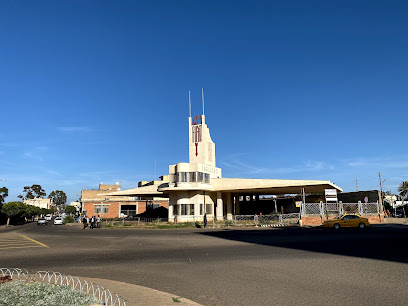
ኣስመራ ካቴድራል | Cathedral Our Lady of the Rosary
Experience the architectural beauty and serene ambiance of Cathedral Our Lady of the Rosary in Asmara, a must-visit cultural landmark in Eritrea.
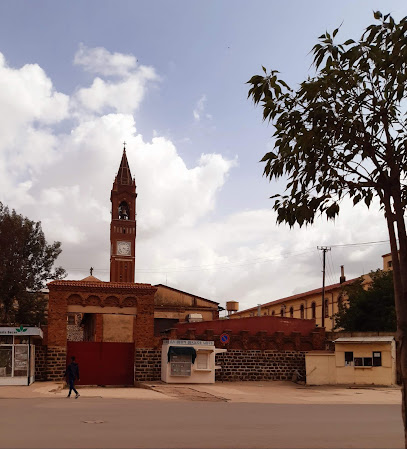
National Museum of Eritrea
Uncover the rich history and culture of Eritrea at the National Museum of Eritrea, a must-visit destination in Asmara for all history enthusiasts.
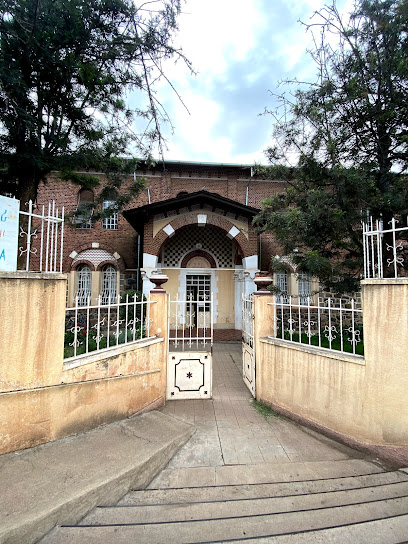
Mai jah jah
Explore the beauty of Eritrea at Mai jah jah Promenade, a scenic pathway in Asmara that blends nature, culture, and tranquility.
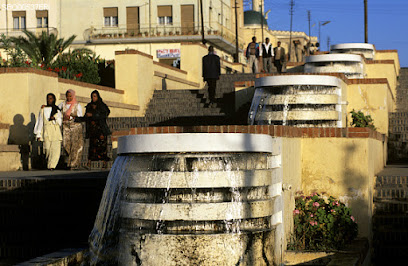
Molki Eritrea Gash barka
Explore the captivating history and cultural heritage at Molki Eritrea Gash Barka, a historical landmark in Tsibuk-Gra, Eritrea.

Barka
Experience the serene beauty of Barka, Eritrea, where lush landscapes and tranquil waters await every traveler.

Gash
Experience the tranquil charm of Gash River in Eritrea, where natural beauty and cultural richness await every traveler.

Hotel & bar gash barka
Discover the charm of Eritrea at Hotel & Bar Gash Barka, where comfort meets local hospitality in the heart of Omhajer.

Barentu Mosque
Experience the architectural beauty and spiritual serenity of Barentu Mosque, a cultural gem in the heart of Eritrea.

Unmissable attractions to see
Fiat Tagliero ፡ፍያት ታሌሮ
Explore the architectural gem of Fiat Tagliero in Asmara, Eritrea, where modernism meets historical significance.
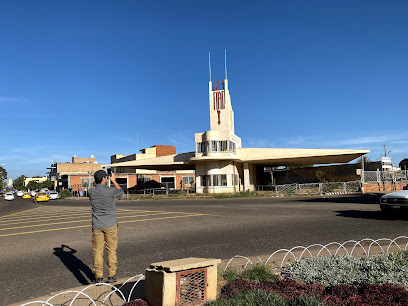
ኣስመራ ካቴድራል | Cathedral Our Lady of the Rosary
Experience the architectural splendor and spiritual tranquility of Cathedral Our Lady of the Rosary, a must-see attraction in Asmara, Eritrea.
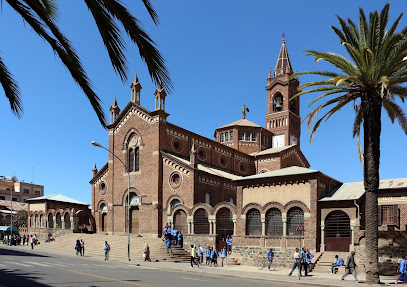
Akria
Explore Akria in Asmara, Eritrea – a stunning tourist attraction showcasing unique architecture and rich cultural heritage.
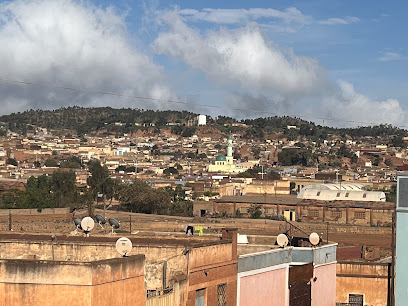
ዲጋ ሰሞሞ(Semomo Dam)
Explore the beauty of Semomo Dam in Adi Kuala, Eritrea, where nature and tranquility meet in a stunning landscape.
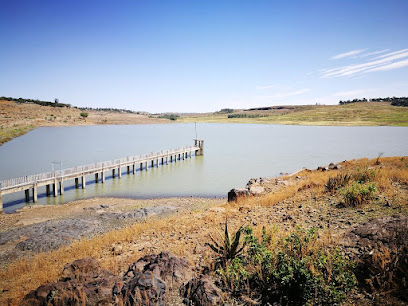
Galay
Explore Galay, a breathtaking tourist attraction in Eritrea, where stunning landscapes meet rich cultural experiences.

شقلت، عد كوروب
Discover the breathtaking beauty and cultural richness of Shaklit, Ad Kurob, a must-visit tourist attraction in Eritrea, perfect for nature lovers and history enthusiasts.

Keshi Ftsum building
Discover the architectural beauty of Keshi Ftsum Building, a must-visit tourist attraction in the heart of Asmara, Eritrea, showcasing unique styles and rich history.

جزيرة شيخ سعيد
Experience the serene beauty and cultural richness of جزيرة شيخ سعيد, a pristine island paradise near Mitsiwa, Eritrea, perfect for unforgettable adventures.

Tselim qelay
Explore the tranquil beauty of Tselim Qelay, a hidden garden haven in Badme, Eritrea, perfect for relaxation and nature appreciation.

እንባሓ
Experience the rich culture, stunning landscapes, and warm hospitality of Segheneyti, Eritrea's hidden gem for travelers seeking adventure and authenticity.

Anseba Eritrea
Explore the breathtaking landscapes and rich cultural heritage of Anseba, Eritrea, a hidden gem for nature lovers and adventurers.

Hujar
Explore Hujar in Barentu, Eritrea: A hidden tourist attraction offering stunning landscapes and rich cultural experiences.
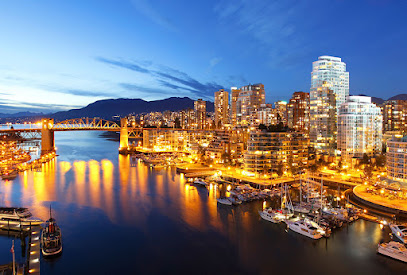
ميدان بارنتو
Discover the serene beauty of Midan Barentu, a tranquil park in Eritrea perfect for relaxation and cultural experiences.
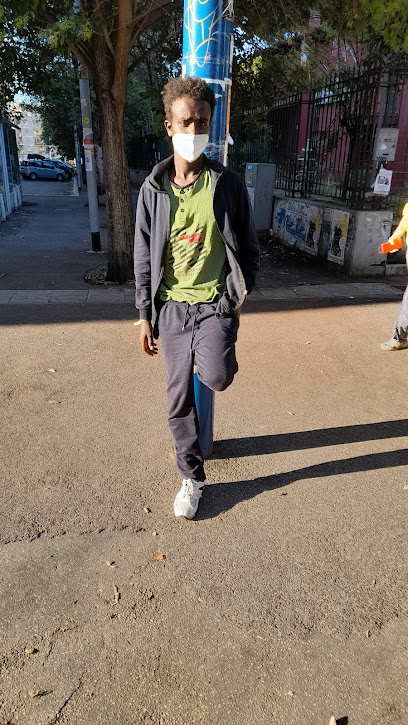
ቀጠንቲ
Explore the charm of Segheneyti, Eritrea, where rich history meets breathtaking landscapes in a unique travel experience.

Ghirmay Tesfamariam
Explore the captivating beauty and rich culture at Ghirmay Tesfamariam, a premier tourist attraction in Serejeka, Eritrea.
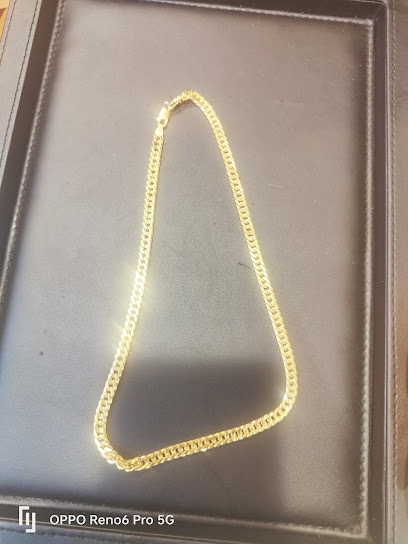
Essential places to dine
Ghibabo Restaurant And Pizzeria
Discover authentic Eritrean flavors and delightful pizzas at Ghibabo Restaurant And Pizzeria in Asmara – a true culinary treasure.
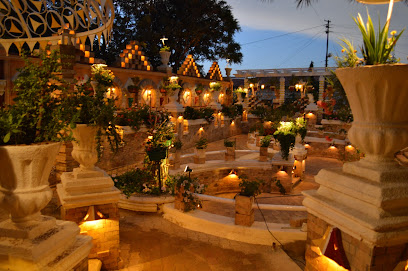
Spaghetti And Pizza House
Experience the best of Eritrean and Italian cuisine at Spaghetti And Pizza House in Asmara - a culinary delight not to be missed.
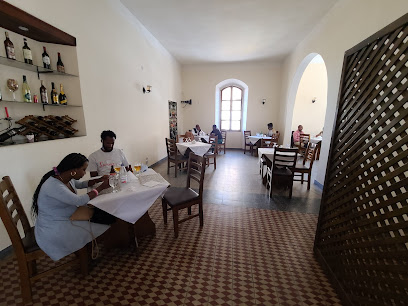
Golden Fork Fast Food
Experience authentic Eritrean cuisine at Golden Fork Fast Food in Asmara - where every dish is packed with flavor.

Al Sicomoro Restaurant
Experience authentic Italian cuisine at Al Sicomoro Restaurant in Asmara, Eritrea - where every meal is a celebration of flavor.
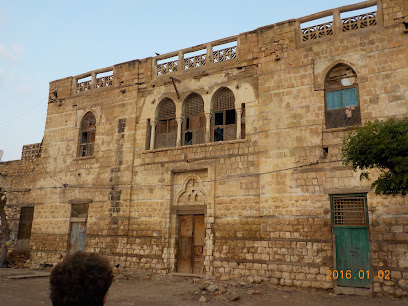
ማእከላይ ከረን Central Keren
Experience authentic Eritrean flavors at Central Keren - a must-visit restaurant in the heart of Keren.
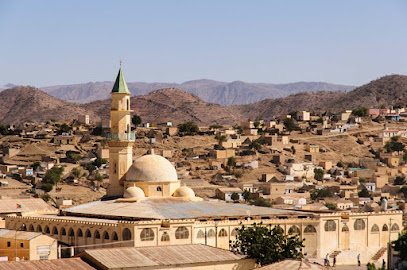
The Roof Garden
Discover authentic Eritrean cuisine with stunning views at The Roof Garden in Asmara – an unforgettable dining experience awaits.
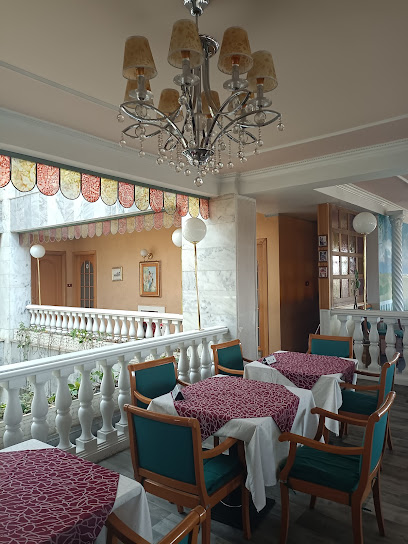
Casa degli Italiani Restaurant
Experience authentic Italian cuisine at Casa degli Italiani Restaurant in Asmara - where tradition meets taste.
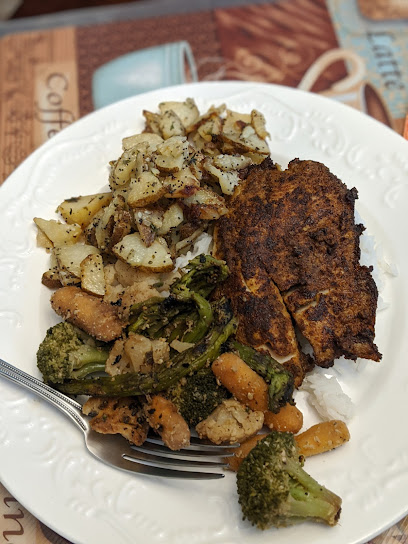
Arobana Restaurant
Discover authentic Eritrean flavors at Arobana Restaurant in Asmara, where tradition meets modern dining in a welcoming atmosphere.
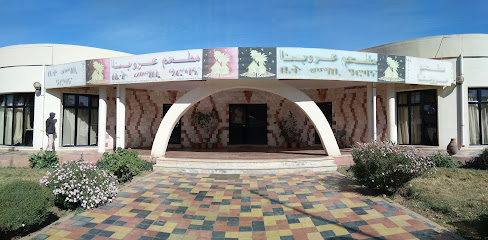
Hibal Snack Bar
Discover authentic Eritrean cuisine at Hibal Snack Bar in Asmara – where every dish tells a story of tradition and flavor.
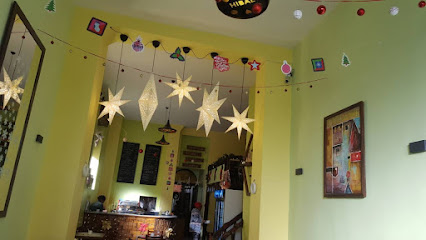
SIEM FASTFOOD
Experience the delightful fusion of local flavors and fast food convenience at SIEM FASTFOOD in Asmara.
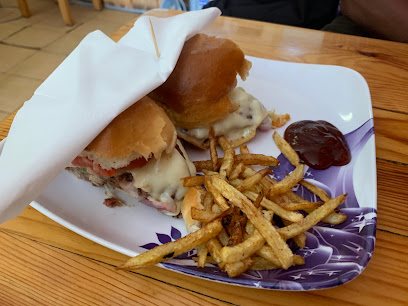
Eritrean Asmeea Senbel
Experience authentic Eritrean cuisine at Asmeea Senbel in Asmara – where tradition meets flavor in every bite.

Adi fnin ዓዲ ፍኒን
Experience authentic Eritrean cuisine at Adi fnin in Adi Agbay—where tradition meets flavor in every dish.
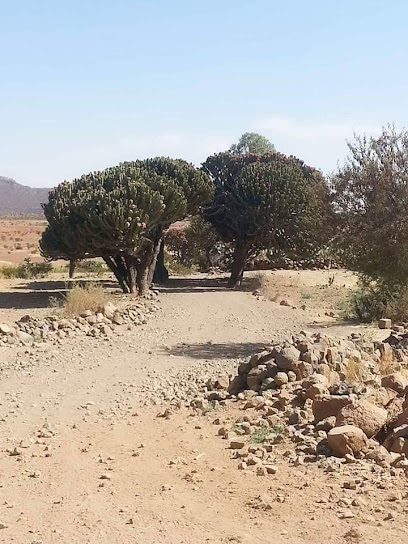
Rendez-Vous Restaurant
Experience authentic Eritrean cuisine at Rendez-Vous Restaurant in Asmara – where flavor meets tradition in a cozy setting.
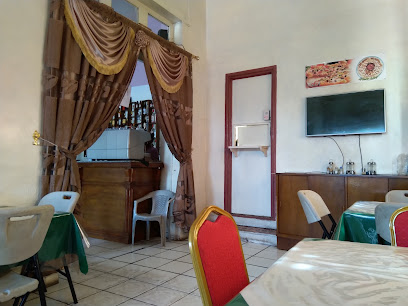
Abeba Restaurant
Experience authentic Eritrean dining at Abeba Restaurant in Asmara – where rich flavors meet warm hospitality.

ሚላኖ Milano Restaurant
Experience the essence of Italy at ሚላኖ Milano Restaurant in Asmara—where authentic flavors meet warm hospitality.

Markets, malls and hidden boutiques
Koyta Bakery
Discover the authentic flavors of Eritrea at Koyta Bakery in Barentu, where every bite tells a story of tradition and culture.

Akile Shop
Explore the latest electronics at Akile Shop in Barentu, Eritrea – a top destination for tech enthusiasts and travelers alike.

Zara Boutique
Discover Zara Boutique in Asmara: Where Eritrean Culture Meets Contemporary Fashion, Offering Unique Styles for Every Occasion.
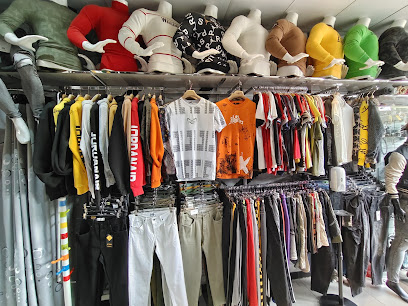
Every Thing For The House
Explore a diverse range of local home goods, from textiles to pottery, at Every Thing For The House in Asmara, Eritrea.
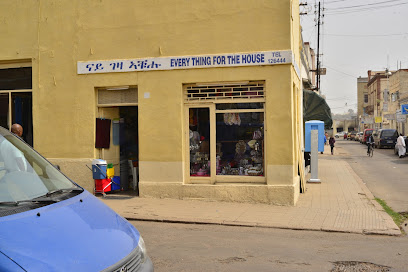
Dukan gal TaLa
Discover the vibrant shopping experience at Dukan gal TaLa, where local culture meets modern retail in Shambiko, Eritrea.

Bairamichael
Explore Bairamichael in Algheden for a taste of local Eritrean culture and fresh, high-quality grocery items.

Hadas kids store
Discover stylish and quality baby clothing at Hadas Kids Store in Asmara, Eritrea - a must-visit for every parent!
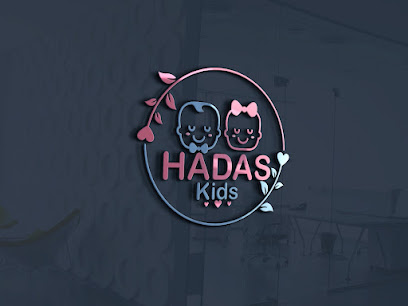
ደሊና ቡቲክ DELINA BOUTIQUE
Explore the vibrant essence of Eritrean culture at Delina Boutique in Asmara, a must-visit destination for unique fashion and accessories.
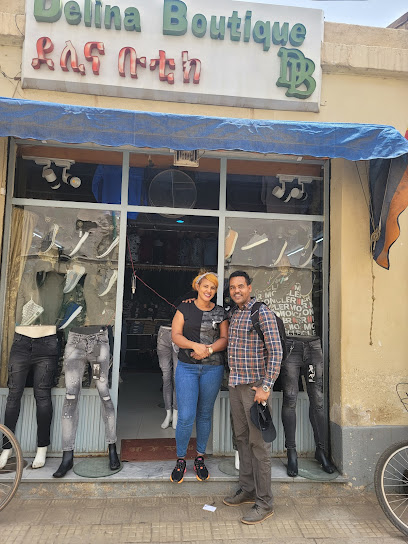
Saleh Aman boutique
Explore the unique charm of Eritrean fashion at Saleh Aman Boutique, where tradition meets modern style in a vibrant shopping atmosphere.

MENDER BOUTIQUE
Explore Mender Boutique in Asmara for a unique selection of men's fashion that blends quality, style, and local Eritrean culture.
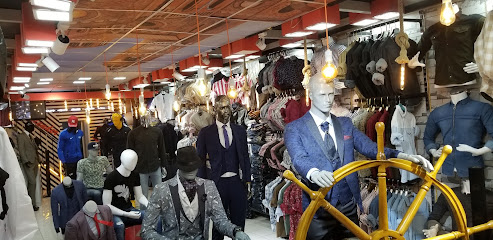
Sembel Eritrea
Discover the vibrant local culture and unique offerings at Sembel Eritrea, a must-visit store in Denbe Bengul.
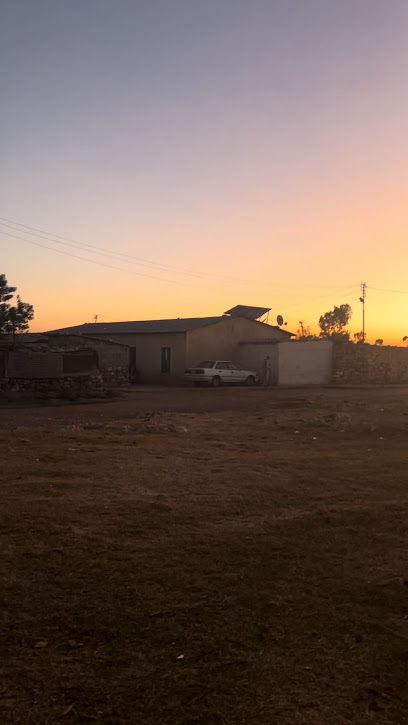
Forobya
Discover the artistry of Eritrean furniture at Forobya in Hagaz, where tradition meets modern design in every handcrafted piece.

Dukan Teklezghi Weldeab
Discover the charm of Eritrean coffee culture at Dukan Teklezghi Weldeab in Ad Taulet, where rich flavors and warm hospitality await every visitor.

Sigr riba
Experience the local charm of Hagaz at Sigr Riba, a beloved general store offering unique Eritrean products and a glimpse into everyday life.

Dukan
Discover Eritrean fashion at Dukan in Asmara, where traditional craftsmanship meets contemporary style in a vibrant shopping experience.

Essential bars & hidden hideouts
Bar selam ባር ሰላም ( እንዳ ሳባ)
Experience the vibrant nightlife of Eritrea at Bar Selam, a beloved bar in Adi Kontsi known for its welcoming atmosphere and local drinks.

Goitom's Bar and Restaurant
Discover the vibrant taste of Eritrea at Goitom's Bar and Restaurant, a lively spot in Asmara for local cuisine and delightful drinks.
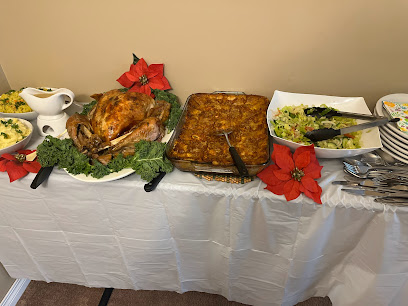
Bar Kebedesh
Discover the vibrant atmosphere of Bar Kebedesh in Asmara, where local flavors and lively culture come together in an unforgettable bar experience.

Awtisti
Experience the vibrant nightlife at Awtisti, Barentu's premier bar for drinks, music, and local culture!

Bar Folia
Discover Bar Folia in Asmara, Eritrea - a cozy bar offering a perfect blend of local drinks and a vibrant atmosphere for tourists.

Bar Tsigereda
Experience vibrant Eritrean nightlife at Bar Tsigereda, where local drinks and culture come together in a welcoming atmosphere.

Bar Lidia
Experience the vibrant nightlife of Asmara at Bar Lidia, where local drinks and a lively atmosphere await every traveler.

Bar Rosina
Experience the vibrant atmosphere and local flavors at Bar Rosina, the heart of Asmara's nightlife scene.

Bar Tiblets
Discover the vibrant atmosphere of Bar Tiblets in Asmara, where locals and travelers unite over drinks and good company.

Star bar
Discover the authentic taste of Eritrea at Star Bar, where rich flavors and vibrant atmosphere await every visitor.

Gazziela - ጋዜላ
Experience the vibrant nightlife of Asmara at Gazziela - a lively bar offering local drinks and a welcoming atmosphere.

ባር ሳዋ(bar sawa)
Discover the vibrant nightlife at Bar Sawa in Omhajer, a perfect blend of local culture, drinks, and unforgettable experiences.

Bar jimi
Experience the vibrant atmosphere and local flavors at Bar Jimi, a must-visit bar in Barda, Eritrea, perfect for socializing and relaxation.

Bar mihret mered
Experience the vibrant nightlife and local flavors at Bar Mihret Mered, a must-visit bar in Antit Are, Eritrea.
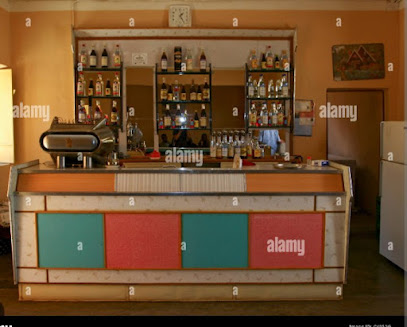
Local Phrases about Gash-Barka Region
-
- Helloሰላም
[selam] - Goodbyeዝንቅብ
[zenkib] - Yesእወ
[ew] - Noኣይ
[ay] - Please/You're welcomeእንፈልጥ/እወ ነገር ክሳብ
[enflet/ew negere kisab] - Thank youኣመሰግና
[amesegnna] - Excuse me/Sorryኣስሓሕካ/ስእል፡ወልደር።
[ashahka/sel weleder] - How are you?እንቋዕ ናብ እዩ?
[enkhaa nab eyu] - Fine. And you?ኣለኹን። እዩ።
[alekun. eyu] - Do you speak English?ናብዚም እንግሊዝ እዩ?
[nabzim engliz eyu] - I don't understandኣንቓዕ፡ኣብዚም
[ankaa abzim]
- Helloሰላም
-
- I'd like to see the menu, pleaseናሕበት ምእታይ እዩ ሓንቲ።
[nahbet me'etay eyu hanti] - I don't eat meatምምልካ ኣምላኽ መስከረ።
[mmelka amlak mesker] - Cheers!ብደምሳይ!
[bdamsey] - I would like to pay, pleaseናሕበት ክሳብ እዩ ሓንቲ።
[nahbet kisab eyu hanti]
- I'd like to see the menu, pleaseናሕበት ምእታይ እዩ ሓንቲ።
-
- Help!እውን!
[ewen] - Go away!በባሕ!
[bebah] - Call the Police!ክብርቲ ፖለስ እዩ!
[kiberti polis eyu] - Call a doctor!ክብርቲ ሜድር እዩ!
[kiberti medir eyu] - I'm lostእፍላለን።
[eflalen] - I'm illእንዲያ ኣምሕ።
[endia amh]
- Help!እውን!
-
- I'd like to buy...ናሕበት ገብረ።
[nahbet gaber] - I'm just lookingብርጭሓት ክምረጽ፡ካብታል።
[bruchaht kemerets kabtal] - How much is it?በዚ መብርሂ?
[bezi mabrihi] - That's too expensiveእንቓዕ ብርሂ ነገር።
[enkhaa b'ri negere] - Can you lower the price?ይብሉኽ ክሳብ እዩ።
[yebeluk kisab eyu]
- I'd like to buy...ናሕበት ገብረ።
-
- What time is it?ስእለት ኣብዚ መቐለ?
[sellet abzi meqle] - It's one o'clockኣነ ሰንበት ክሳብ።
[an s'nbet kisab] - Half past (10)ሰላም ኣብዚ ትንሽ።
[selam abzi t'ensh] - Morningመወዳእታት
[mewdattat] - Afternoonምቅዝጢ
[mekzi] - Eveningምሕተታት
[mhetetat] - Yesterdayትሽነራት
[tishenrat] - Todayእምነት
[emnet] - Tomorrowስምንት
[semnet] - 1ኣነ
[an] - 2ርብዒ
[r'bi] - 3ሥጋሕ
[s'gah] - 4ኣሕሽ
[ahsh] - 5ሓምለ
[hamel] - 6ሕሙም
[h'mum] - 7ሰብሓ
[sebha] - 8ሰርባ
[serba] - 9አስር
[asra] - 10ሰንበት
[s'nbet]
- What time is it?ስእለት ኣብዚ መቐለ?
-
- Where's a/the...?ብዝሒ ኣብዚ ወጻኢ።
[bezhi abzi wets'ai] - What's the address?ብዝሒ ኣብዚ ኣዳል።
[bezhi abzi adal] - Can you show me (on the map)?ይብሎ ክንሓቐስ ኣበይ።
[yeblo knhakhes abay] - When's the next (bus)?እቲ ቅረብ ኣብዚ ወጻኢ።
[eti k'erb abzi wets'ai] - A ticket (to ....)ትክብሳቲ እዩ።
[tkbsati eyu]
- Where's a/the...?ብዝሒ ኣብዚ ወጻኢ።
History of Gash-Barka Region
-
The Gash-Barka region is home to remnants of ancient kingdoms that once flourished in the area. Archaeological sites have uncovered evidence of early civilizations, such as the Kingdom of D'mt, which existed around the 8th century BCE. These early societies engaged in trade and had sophisticated systems of governance, leaving behind ruins and artifacts that provide a glimpse into their advanced culture and way of life.
-
During the medieval period, Gash-Barka experienced influences from both Christian and Islamic cultures. The region was part of the broader Axumite Empire, which embraced Christianity in the 4th century CE. Later, Islamic influence spread through trade and conquest, leading to a rich tapestry of religious and cultural exchanges that shaped the area’s architecture, language, and traditions.
-
In the late 19th and early 20th centuries, Gash-Barka came under Italian colonial rule as part of Eritrea. This period saw the introduction of new infrastructure, such as roads and railways, and the establishment of agricultural plantations. The Italian influence is still visible in the architecture of some towns and the introduction of certain crops and culinary traditions.
-
The Gash-Barka region played a significant role in Eritrea's struggle for independence from Ethiopia. It was a battleground for numerous skirmishes and battles, and many local people joined the Eritrean People's Liberation Front (EPLF) to fight for freedom. The region’s landscape bears the marks of this tumultuous period, with memorials and monuments dedicated to the bravery and sacrifices of the independence fighters.
-
Since gaining independence in 1993, Gash-Barka has been a focus of development efforts aimed at rebuilding and improving the region. Initiatives have included the construction of schools, healthcare facilities, and water supply systems. The agricultural sector, a cornerstone of the local economy, has also seen significant investment, with modern techniques being introduced to increase productivity and sustainability.
-
Gash-Barka is one of Eritrea’s most culturally diverse regions, home to various ethnic groups, including the Kunama, Nara, Tigrinya, and Tigre peoples. Each group has its own unique traditions, languages, and customs, contributing to the rich cultural mosaic of the region. Festivals, traditional music, dance, and artisanal crafts are integral parts of life here, offering visitors a vibrant and immersive cultural experience.
Gash-Barka Region Essentials
-
Gash-Barka Region can be accessed via the Asmara International Airport (ASM), located in the capital city of Asmara. From Asmara, you can take a domestic flight to Teseney Airport or travel by road. The road trip from Asmara to Barentu, the regional capital of Gash-Barka, typically takes around 6 to 7 hours by car or bus. It's advisable to book transportation in advance, as options can be limited.
-
Local transportation in Gash-Barka includes buses, minibuses, and taxis. Buses and minibuses are the most common and economical way to travel between towns and villages. Taxis are available in larger towns like Barentu, but it's important to agree on a fare before starting your journey. Renting a car is an option, but ensure you have a reliable vehicle due to the varying quality of roads.
-
The official currency in Eritrea is the Eritrean Nakfa (ERN). Credit cards are rarely accepted, so it's essential to carry cash. There are a few banks in major towns like Barentu where you can exchange foreign currency, but it's advisable to bring enough Nakfa with you. ATMs are scarce and often unreliable, so plan accordingly.
-
Gash-Barka Region is generally safe for tourists, but it's important to exercise caution. Avoid traveling alone at night and be mindful of your belongings in crowded areas. Certain remote areas may have limited access to emergency services. While crime rates targeting tourists are relatively low, always stay vigilant and aware of your surroundings. Avoid areas near the border with Sudan due to potential security concerns.
-
In case of emergency, dial the local emergency number 113 for police assistance. Medical facilities are available in larger towns like Barentu, but they may be limited compared to Western standards. It is highly recommended to have comprehensive travel insurance that covers medical evacuations. For minor health issues, local pharmacies can provide over-the-counter medications.
-
Fashion: Do dress modestly, especially in rural areas and religious sites. Avoid wearing revealing clothing. Religion: Do respect local customs and traditions. Always ask for permission before taking photos inside religious sites. Public Transport: Do be respectful and patient. Public transport can be crowded and schedules may not be strict. Greetings: Do greet people with a handshake and a smile. Elders should be greeted first out of respect. Eating & Drinking: Do try local dishes and accept food offerings graciously. Don’t refuse hospitality, as it is considered impolite.
-
To experience Gash-Barka like a local, visit the vibrant markets in Barentu where you can buy fresh produce and traditional Eritrean goods. Engage with locals who are often friendly and eager to share their culture. Don't miss visiting historical sites such as the ancient town of Qohaito and the archaeological sites in Adi-Quala. For an authentic experience, participate in local festivals and events to get a deeper insight into the regional culture.
Nearby Cities to Gash-Barka Region
-
Things To Do in Teseney
-
Things To Do in Asmara
-
Things To Do in Mendefera
-
Things To Do in Dekemhare
-
Things To Do in Adi Quala
-
Things To Do in Axum
-
Things To Do in Adi Keyh
-
Things To Do in Mekele
-
Things To Do in Gondar
-
Things To Do in Lalibela
-
Things To Do in Bahir Dar
-
Things To Do in Jizan
-
Things To Do in Debre Markos
-
Things To Do in Abha
-
Things To Do in Khamis Mushait






